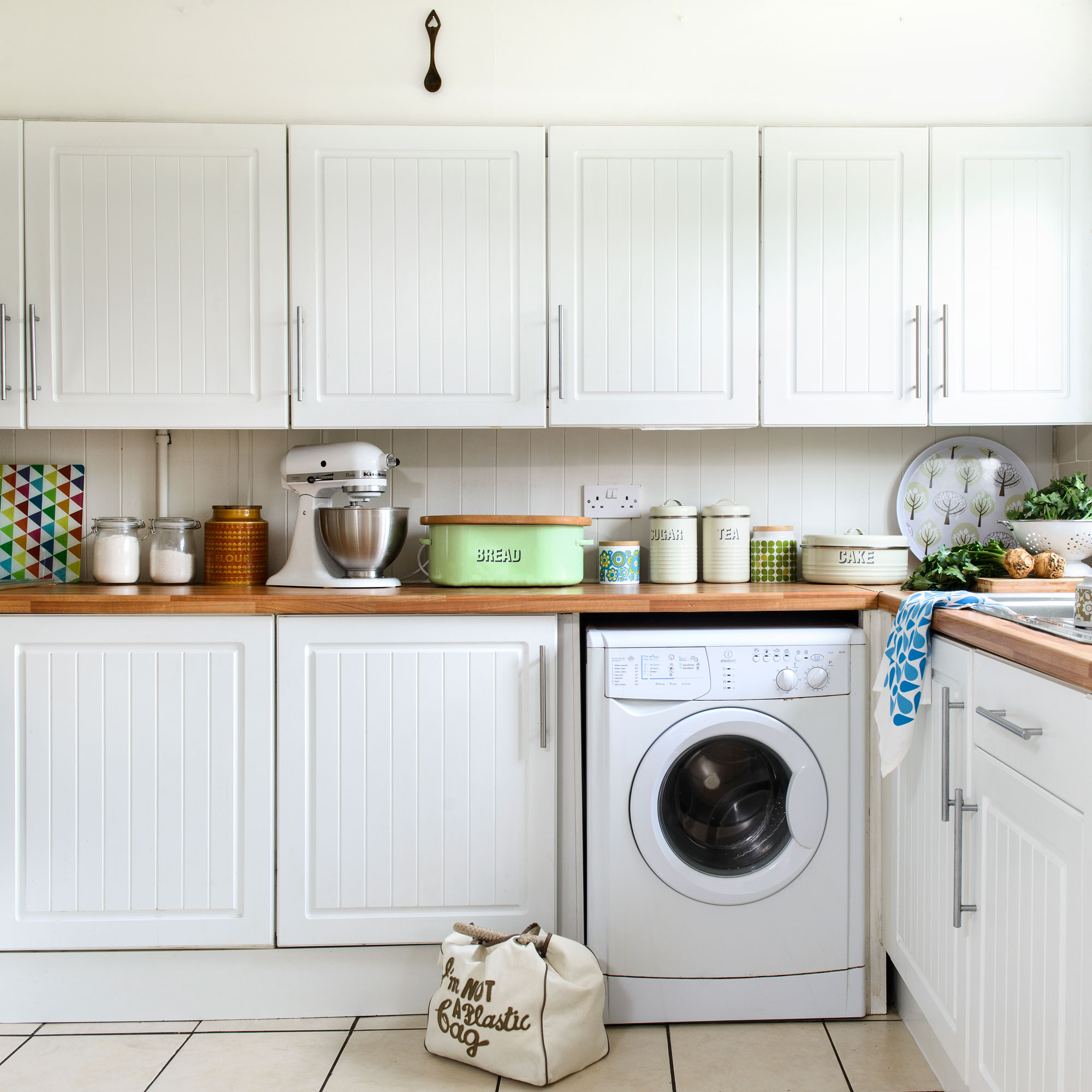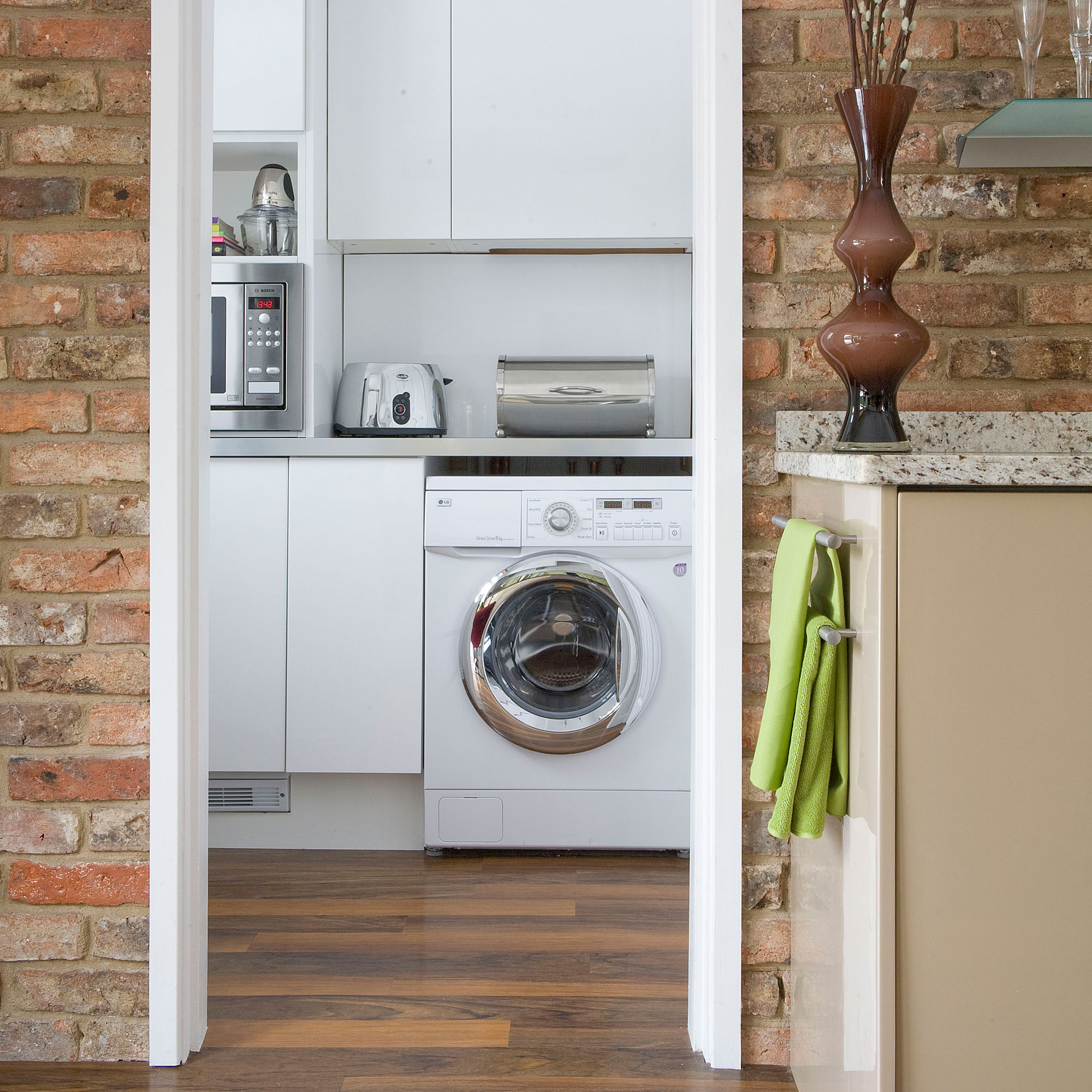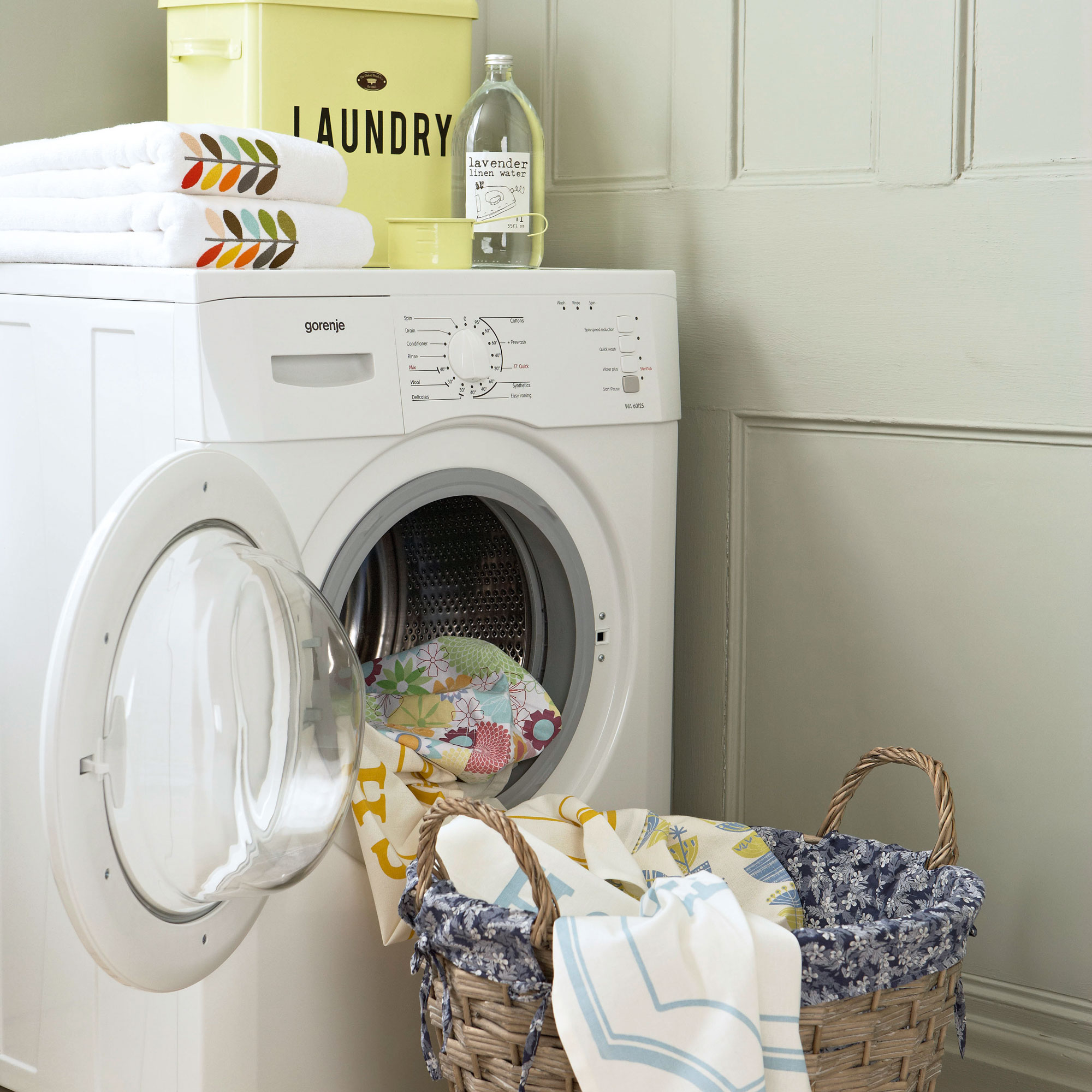How to clean mould from a washing machine – demould the seal and drawer
Banish grime and bad smells with our expert advice on cleaning mould from a washing machine


The washing machine is one of the most hardworking home appliances, yet we don't tend to pay much attention to it until there's a problem or a funny smell. If you've just discovered shocking levels of grime and gunk on the inside of your washing machine, we have all the answers you need.
Black mould can develop in the detergent drawer, the area around it, and in the rubber seal on the washing machine door. We turned to professional cleaners for their expert tips on how to clean a washing machine to help you get yours mould-free and squeaky clean. Having the best cleaning products handy always helps with occasional deep cleaning tasks like this, and our expert advice will save you time and effort.
How to clean mould from a washing machine
'Washing constantly at low temperatures or constantly using colour care or liquid detergents can cause the washing machine to build up with body fats, oils and dead skin cells,' say the experts at Miele. This, in time, accumulates around the suds container and can damage the rubber parts of a washing machine, leading to bacteria, a stale smell and black mould deposits around the door seal.
Thankfully, it's pretty easy to clean mould from a washing machine. Lily Cameron is a domestic cleaning supervisor at Fantastic Services, a website for booking home and garden services such as cleaning, pest control, and handymen. She has shared her eco-friendly recipe for getting rid of washing machine mould that uses just three ingredients.

You will need
- 1 part Borax Substitute, available at Amazon
- 2 parts white vinegar
- 4 parts water
Combine and actively stir the mixture above for 30 seconds and then take a paper towel, dip it in and use it to remove the mould from the affected area. If you don't have any paper towels at home, you could use a microfibre cloth, at Amazon. We'd recommend wearing some cleaning gloves and a mask for this, as Borax Substitute can cause irritation to skin and eyes and shouldn't be inhaled. Keep the room well ventilated and don't use more than necessary.
This mixture is effective because it mixes two natural but powerful cleaning products. Borax Substitute is made of an alkaline mineral compound (sodium sesquicarbonate) that has a needle-like crystal structure and is used for heavy cleaning. Pure Borax is banned in the UK, and is on the EU's list of Substances of Very High Concern. So Borax Subsitute should be used with caution, like any other cleaning product.
It's gentler than soda crystals but stronger than bicarbonate of soda. White vinegar is of course well known for its cleaning powers on everything from rusty tools to your glass shower screen.
Get the Ideal Home Newsletter
Sign up to our newsletter for style and decor inspiration, house makeovers, project advice and more.

How to prevent mould build-up on your washing machine
Now that you've got rid of the mould build-up, it's worth remembering to give your washing machine an annual clean to stop it from getting as bad again. 'There are three places inside your washing machine that you need to clean at least once a year in order to avoid bacteria build-ups and mould,' says Lily Cameron.
'The detergent drawer should be taken out and rinsed with hot water, while scrubbed with a brush to get rid of the mould completely. After that, go for the detergent drawer housing,' Lily continues. 'Long brushes are your friend here – squeeze some detergent on the brush and clean as much as you can. This is also a quite common place where mould can be found.' You could also use an old toothbrush for this job.
'Finally, give a good swipe to the door seal of your washing machine. It's the folds you're after – that is where bacteria is often hiding,' says Lily. Miele recommends regular maintenance washes to prevent mould, as well as making sure you dispense enough detergent for the hardness of the water and the soiling of the laundry.

How to clean mould from a washing machine seal
Lots of Mrs Hinch fans rave about the Astonish mould and mildew spray, £2.40 at Amazon which has lots of positive reviews. It is strong though, with a potent smell, so we recommend you use plastic gloves and a mask with this, too. Simply spray it on your washing machine's rubber seal and put the washing machine on a hot wash.
Our washing machines are always on, relentlessly whirring away keeping our household's clothes clean. Honestly, it came as a shock to us that you have to clean your washing machine in the first place, but if you keep the things that clean your home clean, from your washing machine to your vacuum cleaner, everything else should run smoothly.

Millie Hurst was Senior Content Editor at Ideal Home from 2020-2022, and is now Section Editor at Homes & Gardens. Before stepping into the world of interiors, she worked as a Senior SEO Editor for News UK in both London and New York. You can usually find her looking up trending terms and finding real-life budget makeovers our readers love. Millie came up with the website's daily dupes article which gives readers ways to curate a stylish home for less.
-
 Will a conservatory add value to your home and how can you maximise it?
Will a conservatory add value to your home and how can you maximise it?This is what the pros say
By Amy Reeves
-
 I’ve been looking for a new signature scent for my home and The White Company's new fragrance is the exact summer holiday smell I needed
I’ve been looking for a new signature scent for my home and The White Company's new fragrance is the exact summer holiday smell I neededSantorini smells fresh, summery and sophisticated
By Kezia Reynolds
-
 How to remove algae from garden walls in five steps – and the cleaning product experts rave about for tackling it fast
How to remove algae from garden walls in five steps – and the cleaning product experts rave about for tackling it fastExperts share their top tips for getting garden walls algae-free
By Katie Sims